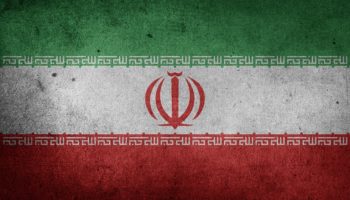
Humanists UK has intervened at the 40th session of the UN Human Rights Council, calling for the immediate release by Iran of those imprisoned for exercising their right to freedom of religion or belief, and for Iran to abolish the death penalty for the crimes of blasphemy and apostasy. The latest intervention came during an ‘interactive dialogue’ with the UN Special Rapporteur on Human Rights in Iran.
Humanists UK’s representative Rachel Taggart-Ryan told the UN, ‘as we mark 30 years since Ayatollah Khomeini issued a fatwa against Humanists UK’s patron and writer Salman Rushdie, we welcome the Special Rapporteur on Iran’s recommendation that Iran “protect the rights of all persons belonging to religious and ethnic minorities, and address all forms of discrimination against them, and release all those imprisoned for having exercised their right to freedom of religion or belief.”
‘In 2017, the UN Human Rights Council put forward a resolution that demanded an end to the death penalty for apostasy and blasphemy. The resolution reaffirmed that Article 18 of the Universal Declaration of Human Rights includes the right to freely change one’s religious beliefs and the right to leave a religion entirely. However, the Iranian Government has made no notable progress towards compliance with it. It remains one of 13 countries where judges can impose the death penalty for apostasy or blasphemy in accordance with their own interpretation of Sharia law.’
Ms Taggart-Ryan called for Iran to abolish the use of the death penalty and to remove blasphemy and apostasy from their penal code.
Humanists UK is a member of the End Blasphemy Laws coalition.
Notes:
For further comment or information, please contact Humanists UK press manager Casey-Ann Seaniger at casey@humanists.uk or phone 020 7324 3078.
Read the intervention: https://humanists.uk/wp-content/uploads/2019-02-25-RTR-UNHRC-Intervention-Item-4-SR-on-Iran.pdf
At Humanists UK, we advance free thinking and promote humanism to create a tolerant society where rational thinking and kindness prevail. Our work brings non-religious people together to develop their own views, helping people be happier and more fulfilled in the one life we have. Through our ceremonies, education services, and community and campaigning work, we strive to create a fair and equal society for all.
